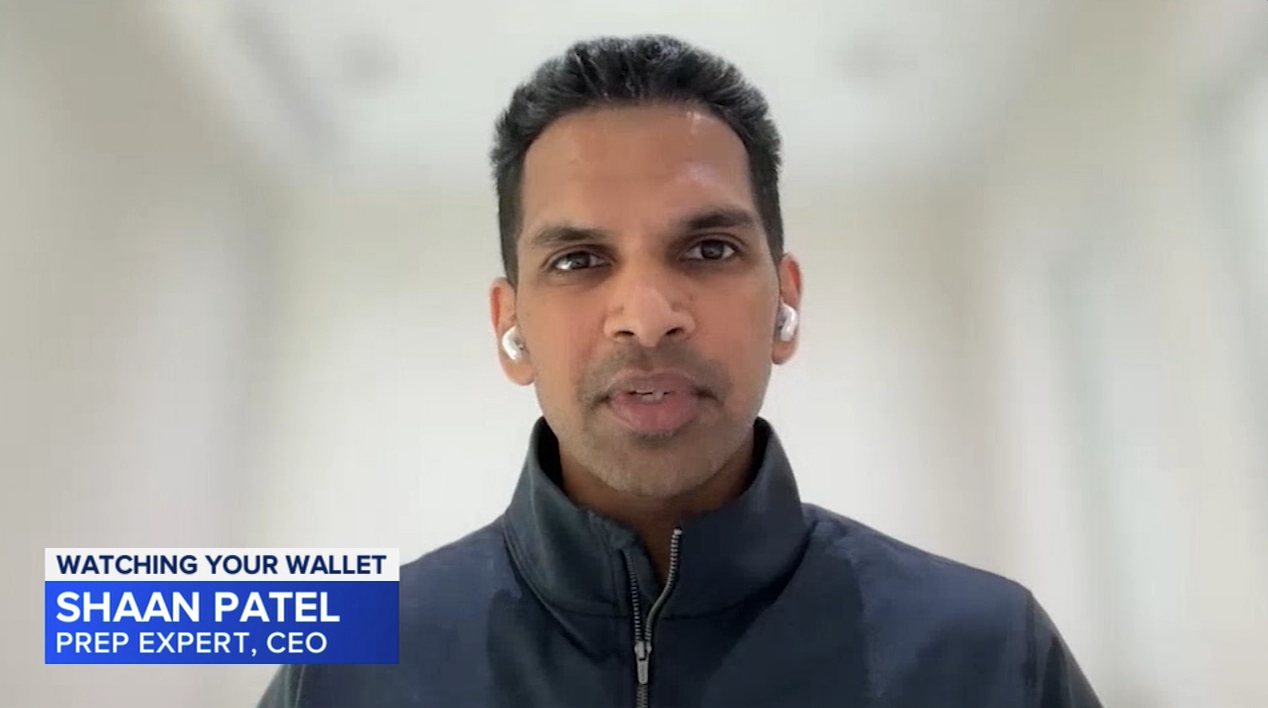How to Get Into Harvard: Breaking Down Harvard Admission Requirements in 2024
Is Harvard at the top of your dream school list? If so, you may feel discouraged or even intimidated by the school’s notoriously low acceptance rate. But, I’m here to tell you that getting into Harvard is an achievable goal as long as you know the admission requirements, plan out your application timeline, and put the work into creating a stellar application.
Here’s what it takes to get into Harvard!
Why Is Harvard So Selective?
With an acceptance rate of 3.59% for the Class of 2028, Harvard is without a doubt one of the toughest colleges to get into in the United States. But why is that? Why is Harvard so selective in comparison to other schools?
As you probably already know, Harvard is an Ivy League school, meaning it’s part of a group of 8 extremely prestigious private colleges. The Ivy League schools (Harvard, Princeton, Yale, UPenn, Columbia, Dartmouth, Brown, and Cornell) are all part of the same athletic conference, but the term “Ivy League” has evolved to mean much more than that.
The Ivies have a strong and historical reputation for academic excellence. Because of that reputation, they receive tens of thousands of applications every year from the country’s most competitive students. Obviously, they can’t accept every application, and most Ivies have a smaller class size than the average state school.
As a result, it has become notoriously difficult to get into Ivy League schools because they have to be highly selective with who they admit. They want to make sure they admit only the best of the best so they can maintain their reputation.
Let’s look at Harvard’s Class of 2028 statistics as an example. Students around the country submitted a whopping 54,008 applications to Harvard. Of those applications, only 1,937 students were actually admitted into the Class of 2028, resulting in the 3.59% acceptance rate I mentioned earlier. With those figures in mind, it’s much easier to wrap your head around why getting into Harvard is so difficult.
How to Get Into Harvard
Don’t lose hope! Despite how selective the admissions committee is, you can still get into Harvard as long as you take the time to develop a competitive application. Your application will consist of 4 main parts, all of which I’ll go over in this section: the application itself, reports and recommendations, standardized test scores, and optional supplemental materials.
Let’s get started!
Application Requirements
Harvard accepts both the Common Application and the Coalition Application by Scoir. If you’re currently looking into applying to colleges, you’ve probably heard of the Common App. It’s an application tool that makes it easier to apply to certain colleges by allowing you to create one “common application” that can be used at all of the member colleges. Some colleges may also ask you to fill out a few additional questions.
The Coalition Application works in much the same way. You will again use a centralized platform to submit applications to schools that have chosen to be members of the Coalition Application.
If you choose to apply to Harvard using either the Common Application or the Coalition Application, make sure you fill out and submit the separate Harvard supplement in addition to the rest of your application before the application deadline.
The application requirements for first-year students using one of these tools are as follows:
- Provide answers to subsets of questions.
- Create a list of your activities.
- Write a personal essay based on the prompts given in the platform.
- Fill out the Harvard Supplement (5 short-answer questions with 200 word limits each).
When you submit your application, you will have to pay an $85 application fee as well. Students who qualify may be able to request a fee waiver if paying the fee presents a hardship for them or their families. You can indicate that you meet the threshold of financial need for a waiver on either the Common Application or the Coalition Application.
Reports and Recommendations
The next pieces of your application package are both items that will be submitted on your behalf. However, it’s still your responsibility to ensure that they make it to their destination before the application deadline rolls around, so pay close attention.
First, you need to tackle your school reports. Harvard asks you to submit 2 school reports (3 if you’re admitted choose to attend): the secondary school report and the midyear school report.
The secondary school report will be submitted either by your guidance counselor or another leader at your school. It consists of your academic transcript, a letter of recommendation, and a profile of your school. The purpose of the secondary school report is to give the admissions committee an overview of your academic record so far.
Typically, the secondary school report will be sent in so early into your senior year that there will be few senior grades for the admissions committee to assess. The midyear school report fixes this issue by reporting your grades from the first semester of your senior year. Make sure your guidance counselor or another school leader sends the report as soon as possible once your first semester grades become available.
If you’re admitted to Harvard and you choose to attend, you will also be asked to send in a final school report and a transcript no later than July 1. Keep in mind that the average high school GPA for admitted students is between a 3.9 and 4.0, so you’ll need to keep your grades up throughout the end of your senior year as well.
Now, let’s talk about recommendations. Harvard requires applying students to submit 2 Teacher Evaluations. These Evaluations each consist of an evaluation form and a letter of recommendation. You can submit additional letters of recommendation after you complete your initial application.
For your Evaluations, you must choose teachers from different academic subjects. It would also be wise to select teachers who know you well and can use specifics to illustrate all your amazing qualities. The last thing you want when applying to such a competitive school is to submit generic recommendations that don’t help you stand out.
Make sure you give your teachers plenty of time to write their recommendations before the deadline. I recommend asking them at least 2 to 4 weeks in advance and providing all the information they need to write and submit the recommendations upfront.
Standardized Test Scores
Next on our list is standardized test scores. Although many of the Ivies, including Harvard, switched to test-optional admissions policies for a number of years, they have since reinstated the submission of standardized test scores as part of the admissions process. All students will be required to submit either their SAT or ACT scores.
In some cases, Harvard may accept alternatives to the usual SAT and ACT scores if those tests are not accessible for a student. Possible alternatives include:
- AP exam results.
- IB Actual or Predicted Scores.
- GCSE/A-Level Actual or Predicted Results.
- National Leaving Exams Results or Predictions.
You can self-report your SAT or ACT test scores on your application. However, all admitted students who end up actually enrolling in the school will be required to submit an official score report before starting.
You can send your scores directly through either the College Board or the ACT. Harvard’s school code for the SAT is 3434, and its code for the ACT is 1840.
It’s important to note that, while Harvard does not have official cut-offs for standardized test scores, it can be helpful to know the average test scores among admitted students before you apply because having an above average score could help set you apart from other students. The average SAT score among admitted Harvard students is around 1500 while the average ACT score ranges from 34 to 36.
However, even if your scores don’t measure up to the average scores, you can still get into Harvard as long as you showcase your talents and academic abilities in other areas of your application. The school will review your application as a whole, not just your test scores.
Supplemental Materials
Harvard also allows students to submit supplemental materials with their application. This can be your opportunity to provide an additional demonstration of an exceptional talent that you highlighted in your application. Or, you may choose to showcase a talent you weren’t able to work into your application that you still feel is a representative part of you.
Supplemental materials are entirely optional. In most cases, the admissions committee will have all the information they need in your standard application. However, you can submit additional items like music recordings, artwork, creative writing, or selected samples of your academic work either through the Applicant Portal or on the Slideroom website.
Application Timeline
As you work on your application, it’s important to keep Harvard’s admission timeline in mind. There are 2 paths you can follow for admission: Restrictive Early Action or Regular Decision.
The Restrictive Early Action program allows you to receive a decision early, usually in mid-December. Even if you are admitted, you do not have to attend and will have until May 1 to make your choice. Note that the application deadline for Restrictive Early Action is November 1.
Students who apply through the Regular Decision program will also have until May 1 to make a choice. However, they will have to wait longer to hear back from the school. The application deadline for Regular Decision is January 1 with students receiving a response by the end of March.
Get Ready for Success with Prep Expert®
If you feel overwhelmed by any piece of the admissions process, Prep Expert® is here to help! With SAT and ACT courses designed to meet the needs of every student, one-on-one tutoring sessions hosted by expert instructors, and dedicated college consulting for students and their families, Prep Expert® offers all the tools you need to set yourself up for success in college and life beyond.
Written by Dr. Shaan Patel MD MBA
Prep Expert Founder & CEO
Shark Tank Winner, Perfect SAT Scorer, Dermatologist, & #1 Bestselling AuthorMore from Dr. Shaan Patel MD MBA

Ivy League Applications: What Sets A Student Apart
Every year, tens of thousands of students apply to Ivy League schools. Only a small fraction receive an offer of…

The Student Loan Rules Just Changed—And Most Families Aren’t Ready
By Dr. Shaan Patel, CEO & Founder of Prep Expert® Student loans have always been complicated. But starting in…

Confidence Is the Hidden Score Booster No One Talks About
Most students think SAT® and ACT® success comes down to knowing more math formulas or grammar rules. That’s only half…